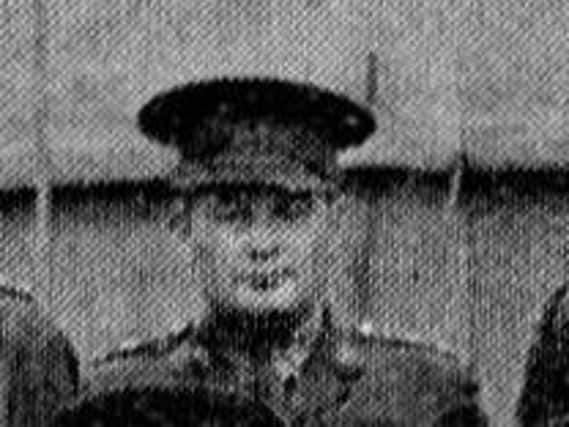Lancashire lawyer who brought the Nazis to justice


Thomas Mercer Backhouse was born to a well-known Lancastrian legal family in 1903. The son of Mary Mercer and Henry Backhouse. he spent his childhood in Sawley, near Clitheroe, and would grow up to follow in his grandfather’s and father’s steps by becoming a lawyer.
Thomas – known as Tommy – studied at Cambridge and was called to the bar at the age of 23. He practiced in Yorkshire and on the Northern Circuit, becoming a well-regarded legal mind, while away from work he married his wife Audrey Heppard in 1935 aged 31 and they would go on to have three children, Christopher, Charlotte and Judith.
Advertisement
Hide AdAdvertisement
Hide AdLater, he embraced military duty and served with the East Lancashire Regiment in the Second World War, although records show he was drafted in to work as an Army lawyer throughout the conflict.
He was given the role of Assistant Deputy Judge Advocate General at HQ Lines of Communication, 21st Army Group. This was the body which looked after all of the administration and areas such as legal matters to take the weight off the fighting formations.
It is likely he served all the way from the Normandy landings of June 1944 to the advance on Germany, in February 1945. The 21st Army Group, commanded by Lord Montgomery, was essentially the British (and Canadian) armies in north western Europe from D-Day to the end of the war. He was twice Mentioned in Dispatches, both for service in north west Europe, first in March 1945 and again in November 1945. He was awarded the OBE.
After the end of the war the Allies formed international military legal committees to ensure former officials and staff of Nazi Germany were placed on trial for war crimes.
Advertisement
Hide AdAdvertisement
Hide AdCol Backhouse’s legal experience saw him chosen as chief prosecutor in the first high profile case, the prosecution of the Belsen-Bergen camp commanders and staff.
He would later take on the responsibility of prosecutor in the first Auschwitz trials and he oversaw the War Crime Sections, a key part of new legal developments rooted in the concept of ‘war crime’, which did not exist before Second World War.
For 54 days in autumn 1945, the eyes of the world were on Backhouse as the Belsen trials took place, in Luneberg, Germany, with 45 men and women in the dock. The most notorious was Josef Kramer, the so-called Beast of Belsen, who was a camp commandant and stood accused of putting thousands to death in gas chambers.
As prosecutor, Col Backhouse laid out the charges against those accused and, in front of the world’s media, described in detail the shocking inhumanity and cruelty of the Nazi camps. After bringing those responsible to justice, Backhouse returned to the Northern Circuit and was back trying more everyday criminals by the summer of 1946. He was soon elevated to a County Court Judge, while his brother Harry became head of the family legal firm, which still exists today in Blackburn.
Advertisement
Hide AdAdvertisement
Hide AdHe also attempted to enter the world of politics in the early 1950s, standing unsuccessfully for the Conservative Party in Rossendale for two successive elections. It was during one campaign he found himself back in the headlines after speaking at a campaign event in Altrincham, when he described Kramer as an “awfully nice chap”.
The comments sparked outrage and Judge Backhouse spoke to a Lancashire Post reporter saying: “I shall maintain that he was a decent type of fellow. It never occurred to him that he was doing wrong in obeying his orders. He was about the only one of the 45 prisoners against whom there was no individual act of cruelty proved. He had a couple of small children who worshipped him.
“But the point I did make is that Kramer is typical of the men who were turned into Huns by the Nazi system. This is the sort of system we should fight against — the system that insists on our obeying orders whereas we should think for ourselves.
“As I say, I do not wish to retract anything. I was assured there were no reporters present at the meeting and although I should not have changed the substance of my speech, I might have been more careful in selecting words.”
Thomas Backhouse died in September 1955 of pleurisy in his home at Newstead Abbey, Nottinghamshire, aged just 51.
Comment Guidelines
National World encourages reader discussion on our stories. User feedback, insights and back-and-forth exchanges add a rich layer of context to reporting. Please review our Community Guidelines before commenting.